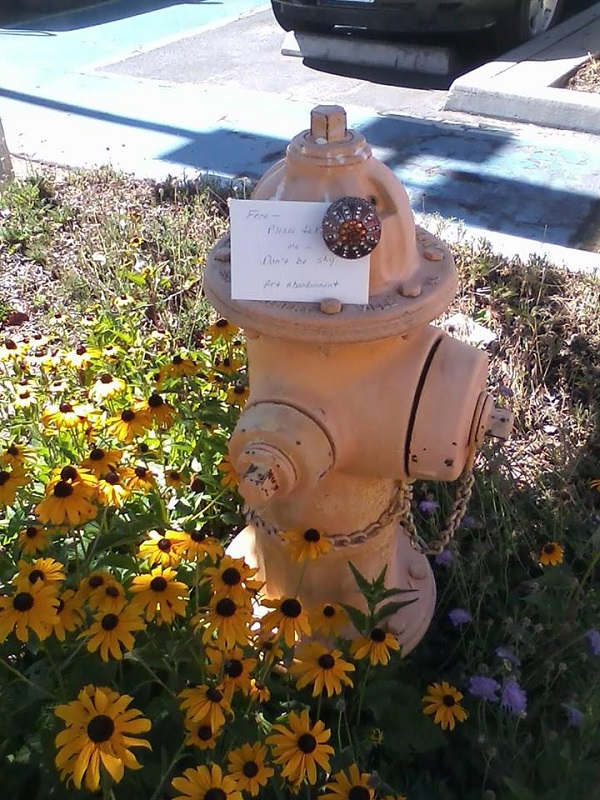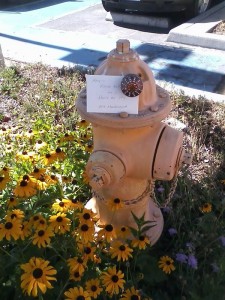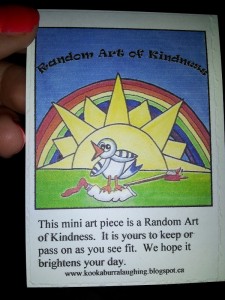Random acts of kindness come in all shapes and sizes, something as simple as a smile to a stranger, or paying for the guy behind you in the cue at the coffee shop drive-thru counts. The idea is to leave someone, whether you know them or not, with a brightened day and a reminder that there are good people. There is an amazing movement happening in the artistic circles, created with the same purpose, it is called art abandonment and artists from all over are leaving behind their artworks anonymously.
Michael deMeng is credited as starting the Facebook Group, Art Abandonment ttps://www.facebook.com/groups/ArtAbandonment/ , although he says the group created itself.
“It’s something that I’ve done for a number of years now, albeit infrequently, usually on beverage napkins and the like,” says deMeng in an introduction to Art Abandonment on his blog. “About ten or so years ago I would walk to the same place by a river and leave a little charcoal drawing. So recently I started this activity up again…leaving little sketches with a note on the back”
deMeng acknowledged that he did not create the idea of art abandonment, but perhaps discovered its use as a random act of kindness as opposed to a political message used by many urban guerilla artists.
In fact, Haldimand-Norfolk artist Jarrod Barker created several guerilla art installations in Haldimand-Norfolk including one at Simcoe’s now demolished American Can property back in the summer of 2010.
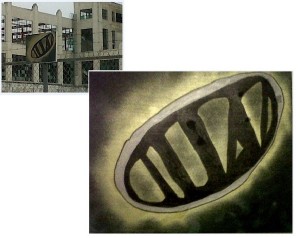
deMeng outlined some of his theories behind the art of abandoning art and its purpose, including that its good for the heart and a little addictive once you begin and the simple fact that money is tight and giving a gift like this could encourage someone to continue to support the arts.
“I think it’s important to be able to let one’s art live beyond it’s creator, I love imagining what becomes of my art after it is gone…whether given or sold,” said deMeng.
“Some folks can’t seem to let go of their work, even when they sell it. This is a great way to learn to move on.”
The concept is very simple:
1) Create a piece of art.
2) Write or attach a note explaining it is a free gift, purposely left behind including contact information if you so wish.
3) Take a photo of your art and its place of abandonment and then sneak away unnoticed.
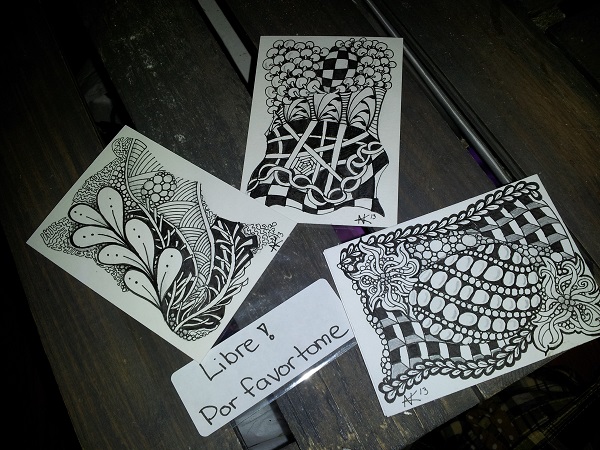 I myself am not an art abandoner, although if I had the time and resources I would, but I thought I could offer a unique opportunity for the abandoners I find so much joy in following on social media.
I myself am not an art abandoner, although if I had the time and resources I would, but I thought I could offer a unique opportunity for the abandoners I find so much joy in following on social media.
June 30, 2013 I will have departed to Peru for a ten day journey across a wide variety of landscapes including urban centers, Machu Picchu, and the Amazon rainforest.
I invited artists to send me their work in order to abandon on my journey, and I would share the photos of their abandonment locations with the artists as I continue my journey.
“Machu Picchu is on my bucket list,” said Burlington artist Heather Kuzyk who sent three art trading cards (atc) to be abandoned.
“So if I never perchance to make it there in body at least a part of my soul has been. ”I was excited by the thought of the photos I could take of the abandoned art on the Machu Picchu ruins with the beautiful Peruvian mountains sprawling in the background. Although I sincerely hope some of the finders will share of their discovery, I’m pleased just to imagine how excited I would be if I found something like that in such a magical place. For The Silo, Lacie Williamson.
Post-script: Remember to never install or leave behind work that contains string, toxic or synthetic materials, small pieces of plastic etc. Anything that can harm or interfere with the natural environment or wildlife must never be used.
